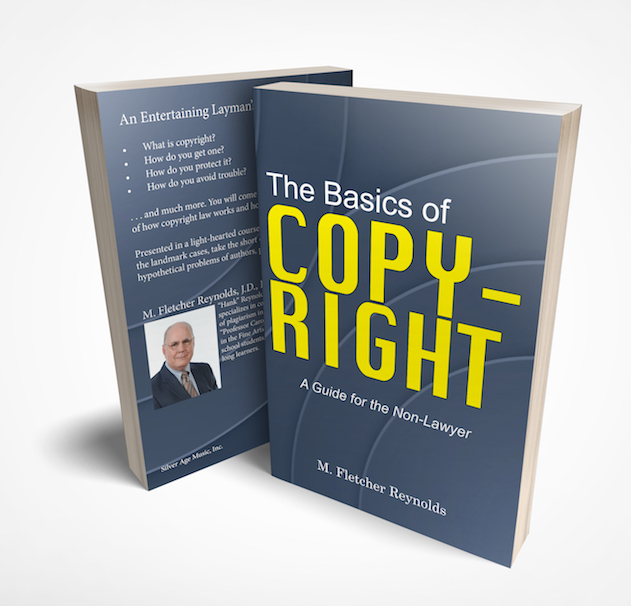
The Basics of Copyright
- What is copyright?
- How do you get one?
- How do you protect it?
- How do you avoid trouble?
. . . and much more. You will come away with an understanding of how copyright law works and how to make it work for you.
Presented in a light-hearted course format, you can dive into the landmark cases, take the short quizzes, and solve the hypothetical problems of authors, publishers, and educators.
“The world is full of misinformation, and that seems particularly true when it comes to copyright. A folklore of copyright has perpetuated itself for many years. Much of what you might read particularly online is misleading, if not flat-out wrong.”
M. Fletcher Reynolds, J.D., Ph.D.
“Hank” Reynolds is an attorney and music theorist specializing in copyright law and the analysis of plagiarism.
$26.95 Paperback Edition
From the Introduction:
Copyright law follows certain general principles that are not difficult for the layman to understand. Of course, these principles are not always easy to apply in real life. There are always new twists and close calls. But you can be reasonably knowledgeable about the broad outlines of copyright law by working through the basic lessons addressed in this book.
The law carries with it a history, methods of interpretation, and sometimes certain assumptions. One law frequently finds itself in some tension with another. This certainly applies to copyright. Once you understand the broad outlines, the particulars of the law begin to make more sense.
This book follows a modified course format with discussion, short quizzes, and references to source materials. While I have adopted the methodology of a typical law course, relying on hypothetical situations and the reading of case law, I am writing primarily for readers not trained in law and probably not interested in getting too far into the legal weeds. The hypotheticals are short and case law has been reduced to heavily edited excerpts. The quizzes are not intended for assessment purposes, but merely to prompt the reader to think about a particular issue.

